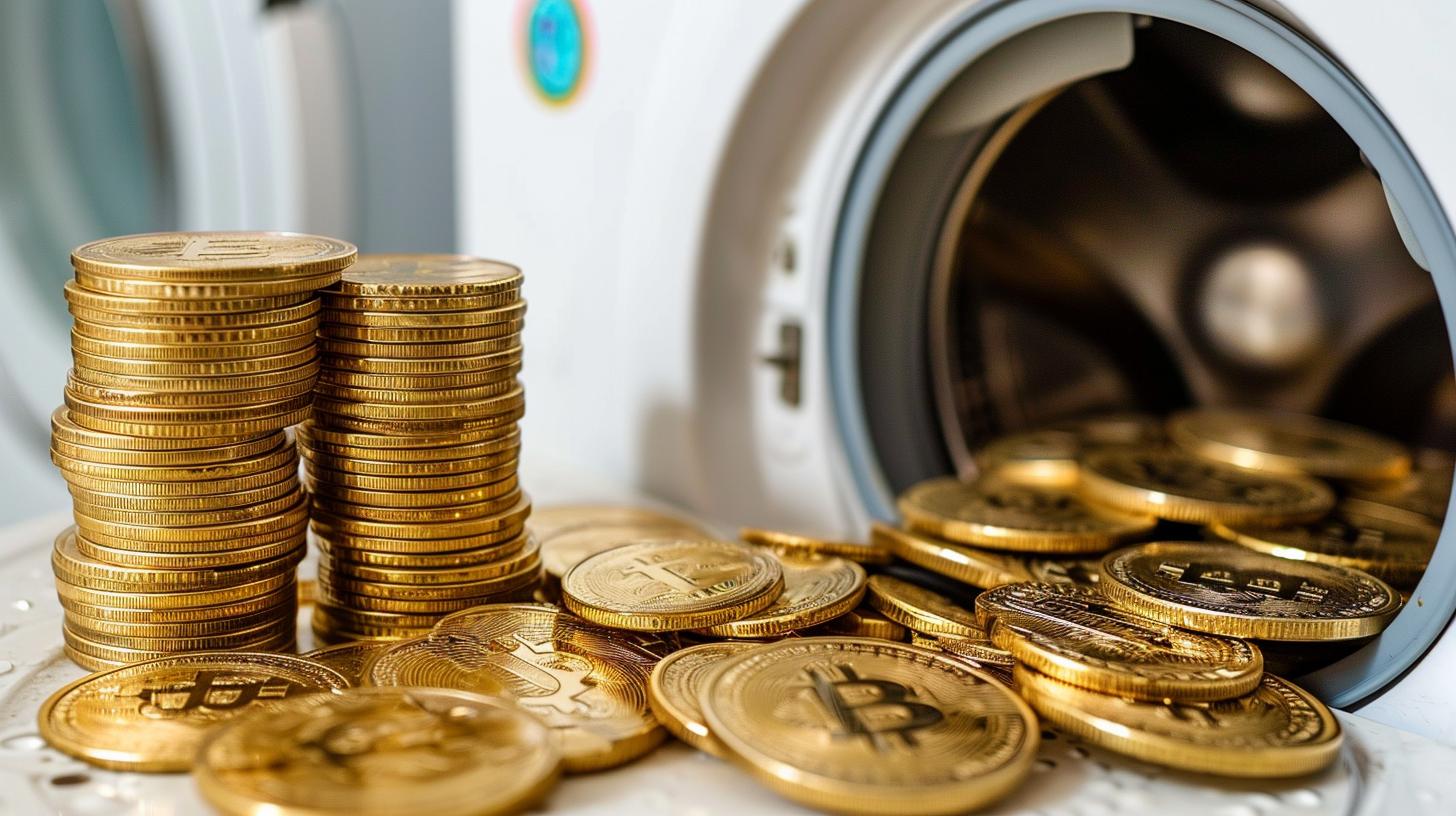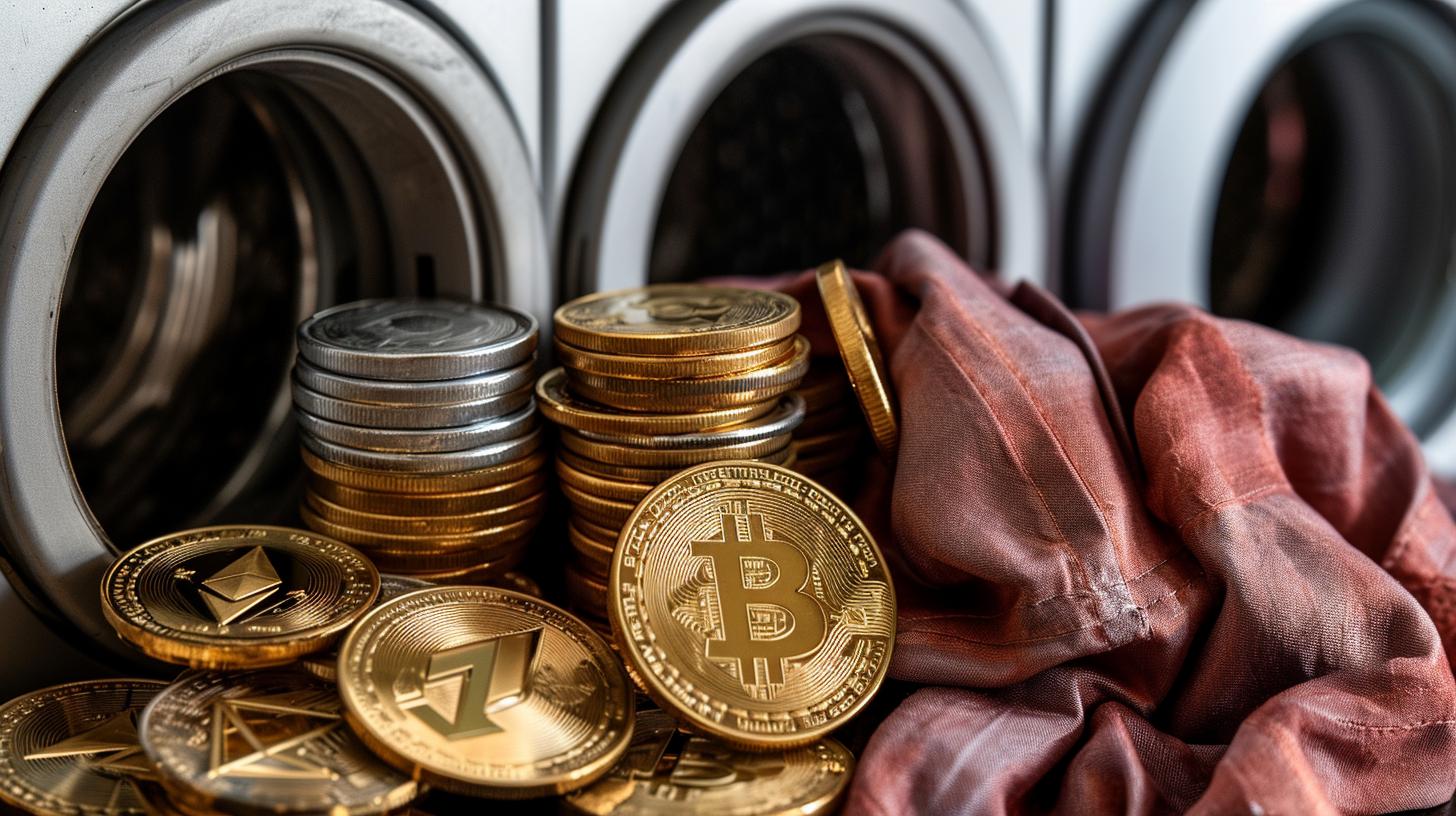
Do wash sale apply to crypto? As the cryptocurrency market continues to grow and evolve, it’s important for traders and investors to understand the concept of wash sales and how it applies to digital assets. Wash sales are a common practice in traditional securities trading, but the application of these regulations to crypto has been a topic of debate and uncertainty.
Understanding the impact of wash sales on the crypto market is crucial for anyone involved in trading or investing in digital currencies. This article will explore the concept of wash sales, its application to traditional securities, and whether or not these regulations apply to cryptocurrencies. We will also delve into the potential impact of wash sales on crypto traders and investors, as well as strategies for avoiding them in the digital asset space.
With the IRS taking a closer look at cryptocurrency transactions, it’s essential for individuals to be aware of the tax implications of wash sales in crypto trading. By examining real-life case studies and examples, we can gain a better understanding of how wash sales play out in the crypto space. Additionally, we will discuss the best practices for navigating wash sale regulations in the ever-changing landscape of cryptocurrency trading.
Understanding Wash Sales and Its Application to Traditional Securities
Wash sales are a common term in the world of traditional securities, but many people wonder if the same rules apply to cryptocurrencies. In traditional securities, a wash sale occurs when an investor sells a security at a loss and then repurchases the same or substantially identical security within 30 days before or after the sale. This could potentially allow the investor to realize a tax benefit from the loss without actually changing their position in the security.
The Internal Revenue Service (IRS) has clear regulations regarding wash sales in traditional securities, but when it comes to cryptocurrency, things become a bit more ambiguous. The IRS treats cryptocurrencies as property for tax purposes, and there is no specific guidance on wash sales as they pertain to digital assets.
However, this does not mean that wash sales do not apply to crypto; it simply means that there is some uncertainty around how these regulations should be interpreted and applied in the crypto space.
Despite the lack of clear guidance from the IRS, it is important for crypto traders and investors to be aware of the potential impact of wash sales on their tax liabilities. Without a clear understanding of how wash sales may be treated by tax authorities, individuals trading cryptocurrencies could inadvertently trigger taxable events without even realizing it.
As such, it’s crucial for those involved in crypto trading to seek professional tax advice and stay informed about any developments or updates regarding wash sales and their application to digital assets.
| Wash Sales Regulations | Traditional Securities |
|---|---|
| Clear regulations from IRS | 30-day rule before or after selling |
| Ambiguous regulations from IRS | No specific guidance for cryptocurrencies |
Do Wash Sales Apply to Crypto
When it comes to cryptocurrencies, the application of wash sales and the regulations surrounding them are a topic of significant interest. Wash sale rules are well-established in traditional securities trading, but their application to the crypto market is still relatively new and evolving. The Internal Revenue Service (IRS) has provided some guidance on the matter, but there are still many unanswered questions.
The IRS has made it clear that wash sale rules do apply to cryptocurrencies. This means that if you sell a cryptocurrency at a loss and repurchase the same or a substantially identical cryptocurrency within 30 days before or after the sale, the loss cannot be claimed for tax purposes. The disallowed loss is added to the cost basis of the new cryptocurrency purchased, which can affect the tax liability when it is eventually sold.
One of the challenges with applying wash sale rules to crypto trading is the lack of clear guidance on what constitutes “substantially identical” cryptocurrencies. With thousands of different cryptocurrencies in existence, determining whether two digital assets are substantially identical can be complex. Additionally, since many crypto transactions occur on various exchanges and platforms, tracking wash sales can be a daunting task for traders and investors.
Overall, understanding how wash sale regulations apply to crypto trading is essential for those involved in this market. Failure to comply with these rules can result in unexpected tax consequences and penalties. As such, seeking professional tax advice specific to cryptocurrency trading is crucial for navigating the nuances of wash sales in this rapidly growing industry.
Potential Impact of Wash Sales on Crypto Traders and Investors
The potential impact of wash sales on crypto traders and investors is significant, as these transactions can have consequences for their tax liabilities and investment strategies. It’s important to understand how wash sales can affect the crypto market and what steps traders and investors can take to minimize their impact.
Here are some potential impacts of wash sales on crypto traders and investors:
1. Tax Liabilities: Wash sales can result in a deferral of tax losses, which may affect the overall tax liability of traders and investors. Understanding the tax implications of wash sales in the crypto market is crucial for accurate reporting and compliance with IRS regulations.
2. Investment Strategies: Wash sales can also influence investment decisions in the crypto space. Traders and investors may need to adjust their trading strategies to account for the impact of wash sales on their portfolio performance.
3. Market Volatility: The occurrence of wash sales in the crypto market can contribute to increased volatility, as these transactions may artificially inflate trading volumes and price movements. This could potentially lead to market distortions and inefficiencies that affect all participants.
To minimize the potential impact of wash sales on their activities, crypto traders and investors should consider implementing the following strategies:
– Keeping detailed records of all cryptocurrency transactions, including buy, sell, and exchange activities.
– Utilizing specific identification accounting methods to track individual assets and avoid triggering wash sale rules.

– Staying informed about IRS regulations and seeking professional advice from tax experts with experience in cryptocurrency taxation.
By understanding the potential impact of wash sales on their activities and implementing appropriate strategies, crypto traders and investors can navigate this aspect of the market more effectively while maintaining compliance with regulatory requirements.
Strategies for Avoiding Wash Sales in the Crypto Market
When it comes to trading and investing in crypto, it’s important to understand the implications of wash sales and how they can impact your bottom line. While the regulations surrounding wash sales have typically applied to traditional securities, there is an ongoing debate about whether or not they also apply to cryptocurrency transactions. In this section, we will delve into some strategies for avoiding wash sales in the crypto market.
Educate Yourself on Wash Sale Regulations
One of the most effective ways to avoid falling into the trap of wash sales in the crypto market is by educating yourself on the regulations surrounding this topic. While there may still be uncertainty about whether or not wash sale rules directly apply to cryptocurrency, having a solid understanding of traditional securities regulations can provide valuable insight.
Additionally, staying up-to-date with any IRS announcements or clarifications related to crypto and wash sales is crucial for navigating this landscape.
Implement a Thoughtful Trading Strategy
Developing a thoughtful trading strategy can also help you steer clear of potential wash sale issues in the crypto market. By being intentional with your buying and selling decisions, you can minimize the risk of triggering a wash sale inadvertently. This might involve setting specific parameters for when you will re-enter a position after selling at a loss, or carefully considering the timing of your trades to avoid running afoul of wash sale regulations.
Utilize Tax-Loss Harvesting
Tax-loss harvesting is another strategy that can be particularly helpful in avoiding wash sales in the crypto market. By strategically realizing losses within your portfolio, you can offset gains and potentially lower your overall tax burden. However, it’s important to ensure that any trades made as part of a tax-loss harvesting strategy do not violate any potential wash sale regulations that may apply to cryptocurrency transactions.
Case Studies
Wash sales are a common phenomenon in the world of traditional securities, but their application to the crypto market is still somewhat unclear. Despite this uncertainty, there have been several real-life examples of wash sales in the crypto space that can provide valuable insights into how these transactions are perceived and regulated by the IRS.

Here are a few real-life examples of wash sales in the crypto space:
- Trader A purchases 1 BTC at $10,000 and sells it at $8,000 for a loss. Shortly after, Trader A buys back 1 BTC at $7,000, effectively creating a wash sale as they reacquired substantially identical property within 30 days of realizing the loss.
- Investor B sells 100 ETH at a loss and then repurchases the same amount within 30 days. This triggers another wash sale as they acquired substantially identical property shortly after realizing the loss.
- Trader C engages in frequent trading of various cryptocurrencies, often selling and repurchasing the same assets multiple times within a short period. Although each transaction may not individually trigger a wash sale, when viewed collectively, they could be seen as an attempt to artificially realize losses for tax purposes.
It’s important for crypto traders and investors to be aware of these examples and understand the potential implications of engaging in wash sales within the crypto market.
Tax Implications of Wash Sales in Crypto Trading
When it comes to the world of crypto trading, it’s essential for investors to understand the tax implications of wash sales. With the rising popularity of cryptocurrencies such as Bitcoin and Ethereum, it’s crucial for traders to navigate the potential impact that wash sales can have on their tax liability.
Understanding Wash Sale Rules and Regulations
The IRS has not explicitly provided guidance on whether wash sale rules apply to cryptocurrencies. However, considering the similarities between traditional securities and cryptocurrencies as investment assets, it’s advisable for traders to exercise caution when it comes to potential wash sale scenarios.
As a general rule, a wash sale occurs when an investor sells or trades a security at a loss and within 30 days before or after this sale, buys a “substantially identical” stock or security. While the definition of “substantially identical” may vary in the context of cryptocurrencies, traders should be mindful of potential wash sale implications.
For crypto traders and investors, properly tracking and reporting transactions is essential for accurately determining tax liability. The lack of clear guidance from the IRS on wash sales in the crypto market adds an additional layer of complexity.
Traders must maintain thorough records of buy and sell transactions in order to calculate gains and losses accurately. Additionally, seeking advice from tax professionals with expertise in cryptocurrency taxation can help investors navigate the potential tax implications of wash sales in crypto trading.
Seeking Professional Guidance
Given the complexities surrounding wash sales in the crypto market, seeking professional assistance from tax experts is highly recommended. Tax professionals who specialize in cryptocurrency taxation can provide valuable insight into managing tax liability effectively while complying with existing regulations. By staying informed about regulatory developments and seeking professional guidance when needed, crypto traders can minimize potential risk related to wash sales and stay abreast of evolving tax implications in the dynamic world of cryptocurrency trading.
Conclusion
In conclusion, the question of whether wash sales apply to crypto trading is an important one for investors and traders in the digital asset space. While wash sale regulations are well-established in traditional securities trading, the application of these rules to cryptocurrency has been a topic of debate and confusion. However, it is clear that the IRS does consider wash sales to apply to crypto, as stated in their guidelines and regulations.
The potential impact of wash sales on crypto traders and investors should not be underestimated. It is essential for market participants to understand the rules and regulations surrounding wash sales in order to avoid unintended tax consequences. This includes being aware of the 30-day window before and after a sale of a particular digital asset, which triggers the wash sale rule and disallows loss deductibility.
To navigate wash sale regulations in the crypto market, traders and investors can employ various strategies. These may include utilizing different cryptocurrencies within similar asset classes or waiting outside of the 30-day window before repurchasing a sold asset. By understanding these strategies and keeping accurate records, individuals can aim to minimize potential tax implications associated with wash sales in their crypto trading activities.
Overall, it is crucial for anyone involved in crypto trading to stay informed about regulatory developments and seek professional advice when necessary. The evolving nature of cryptocurrency regulations means that compliance with tax laws will continue to be an important aspect of participating in this market. As such, staying knowledgeable about how wash sales apply to crypto is essential for long-term success as a trader or investor in this space.






